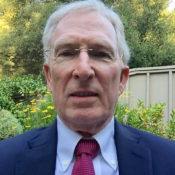SUMMIT DETAILS
Science, Regulation and Public Health
Smoking is the biggest single cause of preventable death in the developed world with almost 1 billion users worldwide. The devastating effect of long-term smoking cannot be underestimated, with approximately half of all lifetime smokers dying from smoking related diseases and many more suffering a compromised quality of life. Despite decades of successful tobacco control efforts, we are still a long way from ending the smoking epidemic. The emergence of e-cigarettes has created one of the most controversial and contentious public health issues of a generation, with divisions appearing within longstanding professional alliances in both Tobacco Control and Public Health communities, despite a continued shared goal of protecting public health and ending the smoking epidemic.
The E-Cigarette Summit provides a neutral platform to explore the available peer reviewed evidence and debate the issues that are dividing scientists, health professionals and policy makers alike. So, are-cigarettes a valuable harm reduction strategy or a tacit U-turn on decades of effective tobacco control efforts? Whichever side of the debate you fall on, this is likely to be one of the most significant public health issues for a generation.
KEY TOPICS
The last 18 months have again seen momentous change in the US tobacco control and legal and regulatory landscape. The tragic EVALI outbreak, which in the minds of many still appears to have been related to nicotine-containing e-cigarettes triggered a wave of hostile government action and tobacco control activism directed at the e-cigarette industry. The EVALI crisis developed concurrently with the release of the 2019 NYTS data, which reflected another dramatic rise in past 30-day e-cigarette use by both high school and middle school youth. Both events appeared to play a role in the former president Trump September 2019 announcement of a decision to remove all flavored e-cigarette products from the marketplace. Though that announcement was partially moderated in FDA’s early 2020 guidance that directed the removal of flavored “cartridge based” products only, there is increased uncertainty around the future of flavored e-cigarettes in the U.S. Now, all U.S. e-cigarette products have been required to enter the premarket tobacco product application (PMTA) process with the FDA – a process that could lead to the removal from the market of a significant number of current products, while potentially answering critical questions regarding product safety and the role of flavors for those products that are able to successfully obtain a PMTA.
As we look ahead to the next 12 months, it remains to be seen how the long-awaited PMTA deadline will impact the potential of tobacco harm reduction (THR). Critical questions include whether FDA product review will provide a measure of stability of this brand new category and whether it will improve the tenor of the U.S. tobacco control conversation. This year’s E-Cigarette Summit USA comes on the eve of a historical transition for the US e-cigarette industry and under the shadow of the Covid pandemic – where socio economic health disparities have been bought in to sharp focus. As always, the Summit looks to provide an evidence based environment that encourages open and respectful dialogue on the key science and current public health topics, with a single aim of reducing smoking related death and disease.
SPEAKERS
Prof Thomas J. Glynn, PhD
Adjunct Lecturer
Stanford Prevention Research Centre, Stanford University School of Medicine
Prof Robin Mermelstein
Distinguished Professor of Psychology and IHRP Director
University of Illinois, Chicago
Prof Neal L. Benowitz MD
Professor of Medicine Emeritus (Active)
University of California, San Franciso
Prof Mike Cummings
Professor, Dep't Psychiatry & Behavioural Sciences
Medical University of South Carolina
Martin Dockrell
Tobacco Control Programme Lead
The Office of Health Improvement and Disparities (OHID), UK
Associate Prof Abigail Friedman
Associate Professor
Dept of Health Policy & Management, Yale School of Public Health
Dr Jamie Hartmann-Boyce
Assistant Professor in Health Promotion and Policy
University of Massachusetts Amherst
Professor Ann McNeill
Professor of Tobacco Addiction
Institute of Psychiatry, Psychology & Neuroscience, Kings College London
Dr. Nancy A. Rigotti, MD
Professor of Medicine, Harvard Medical School
Director, Tobacco Research & Treatment Center, Massachusetts General Hospital, Boston
Prof Scott Sherman
Professor of Population Health, Medicine and Psychiatry
NYU Grossman School of Medicine
Ruoyan Sun
Assistant Professor, Department of Health Policy & Organization
School of Public Health, University of Alabama at Birmingham
Prof Benjamin A. Toll
Professor of Public Health Sciences & Psychiatry
Medical University of South Carolina
Assoc Prof Andrea Villanti
Associate professor in the Department of Health Behavior, Society, and Policy
Rutgers School of Public Health
Prof Kenneth E. Warner
Avedis Donabedian Distinguished University Professor Emeritus and Dean Emeritus
School of Public Health, University of Michigan
Mitch Zeller J.D
Retired Director, Center for Tobacco Products (CTP)
The Food & Drug Administration (FDA)
If you cannot see the full list of speakers required for this page please make sure you have ordered all speakers in your custom list.
Edit Custom Order Here »
Only administrators can see this message





























